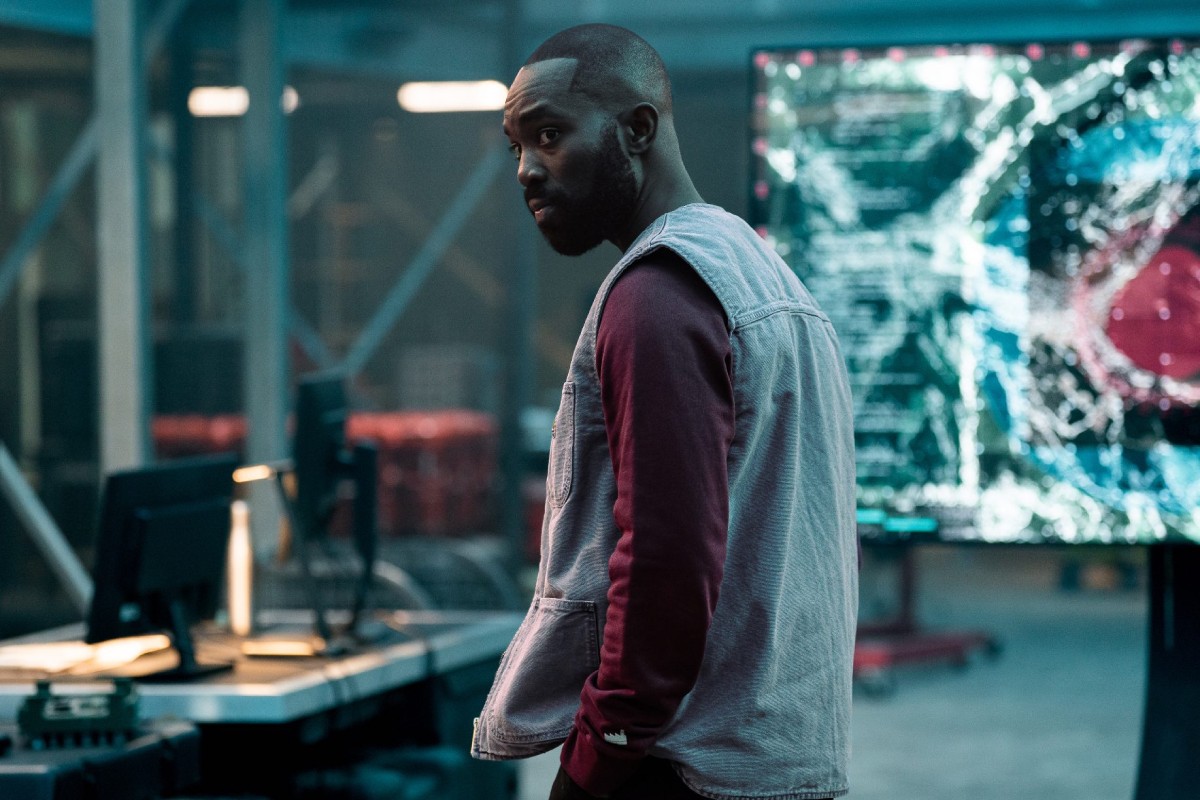Already a big enough hit in the U.K. to earn a second season, anyone who has watched even a few minutes of the NBA Playoffs on TNT has seen the ubiquitous ads for “The Lazarus Project,” premiering June 4th, and probably wondered what the heck is going on. Flipping cars, frightened looks, intense warnings; is this another time loop story like “Palm Springs” or “Happy Death Day”? Sorta. It definitely features a spin on the “Groundhog Day” concept with a blend of world-saving espionage in a way that’s inherently clever, but it works not only because of a clever impossibility but because of how seriously it takes its many ideas. Created by “Girl/Haji” writer Joe Barton and starring “I May Destroy You” standout Paapa Essiedu, “The Lazarus Project” feels like nothing else on TV this season and deserves serious attention.
READ MORE: The 70 Most Anticipated TV Shows & Mini-Series Of 2023
Essiedu plays George, an average Londoner in a healthy marriage with a woman named Sarah (Charly Clive). The two are trying to start a family as he’s about to land a big loan for his emerging app. Everything is going great, except for the coughing people in the background. A show that feels like it’s opening like a pretty traditional romantic drama about life during a pandemic pivots when George wakes up suddenly and it’s once again July 1st. He’s been here. He remembers these conversations. He knows what’s going to happen, right down to what people say, but especially the emergence of a deadly, world-reshaping pandemic. When he tries to warn people, they think he’s crazy, and his work and home lives collapse. Of course, the parallel to the real world is palpable. Imagine if some knew what COVID would bring to the world: who would believe them?
Before George can answer that question, it happens again: he wakes up and it’s July 1st. Sarah loves him again. He’s still got the meeting. No one is coughing. Of course, George starts to think he’s going insane until he’s approached by a mysterious woman named Archie (Anjli Mohindra) who knows his secret and fills him on what’s happening. She’s a part of something called The Lazarus Project, a group of super agents with a very special power to reset the clock. Think of July 1st as a checkpoint in a video game. If a maniac gets his hands on a nuclear weapon, Lazarus can reset to July 1st to catch him. If they make it to a new July 1st, the last year is locked in. Remember how quickly the COVID vaccines were developed? Lazarus helped there with a few resets. And only a few people maintain the memories of the resets into the next alternate timeline. George is one of them.
While it’s clearly a fun, clever concept that most writers would use for action, “The Lazarus Project” excels by taking its concept very seriously at times too. The season’s third episode is haunting, presenting a character who gives birth over the course of multiple resets, losing a child she has grown and loved with every reboot. Imagine the emotional trauma. What if you didn’t want to reset? And what about the opposite? What if you lost a loved one during a year that was about to lock in and actually did want to go back to the last July 1st? And what of the idea that all of this is playing with fate to a dangerous degree? Maybe humanity has actually earned its extinction?
That’s the belief of the chilling Rebrov, played wonderfully by the great character actor Tom Burke of “The Souvenir.” A former Lazarus agent himself, he becomes the fascinating villain of the show, someone trying to dismantle the organization for reasons that make emotional and even philosophical sense. The program becomes not just about a clever sci-fi concept but about playing God. Barton smartly sets up a show that feels very inspired by “The Matrix”—after all, George is kind of like Neo, broken from the rules of time and space that trap the rest of us—but then he pivots to tell other stories inspired by this concept over the next few episodes, turning characters like Archie, Rebrov, Shiv (Rudi Dharmalingam), and Wes (Caroline Quentin) into equal players.
Using the same director (Marco Kreuzpaintner) for the first half of the 8-episode season sent to press gives the “The Lazarus Project” a consistent visual language as it spreads out to reveal its approach to sci-fi storytelling. Those TNT ads have been a bit misleading as the show can be a bit more talky than action-driven at times, often repeating its ideas within episodes, but its talky nature can be forgiven by the way it uses an episodic structure to focus on different characters like Archie in the second and Rebrov and his partner Janet (a very effective Vinette Robinson). In an era of “my season is really an 8-chapter movie,” it’s refreshing to see a show willing to tell a complex story episodically.
At times, it feels like “The Lazarus Project” is almost too complex. There’s a version that has a bit more fun with the concept, although it’s undeniably admirable that Barton goes the other way, digging into trauma and philosophy more than spoon-feeding his audience simplistic action. This is a show that doesn’t just ask what would happen if we had the chance to start over but if we should even do so in the first place. In other words, “The Lazarus Project” asks more questions than most TV series these days, and that’s proof enough of its credibility. [B]





